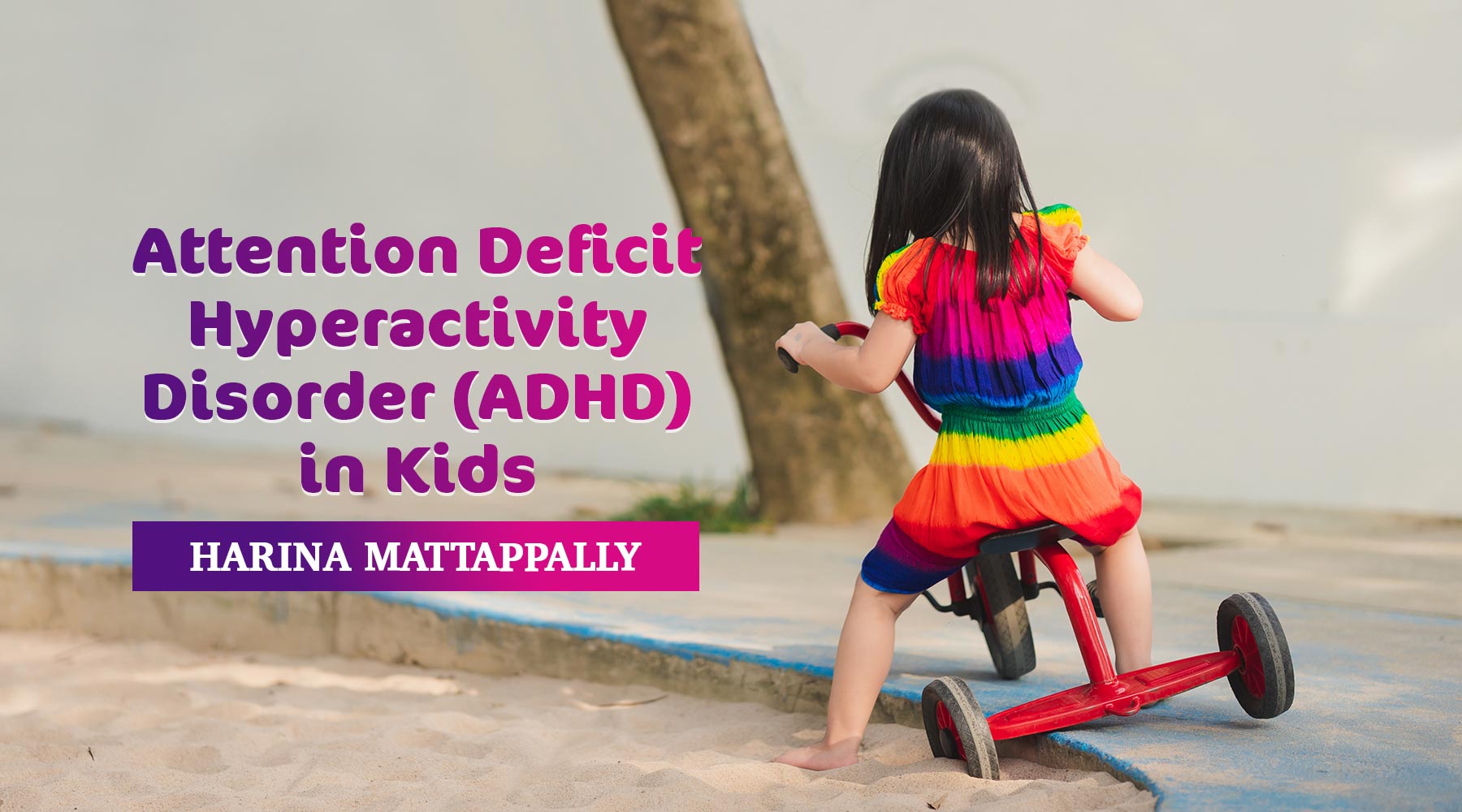“Children are a gift from the Lord; they are a reward from Him.” (Psalms 127:3)
Every child has moments of enjoyability and peace, but also stages of impulsive, out of control, and sometimes, irritable behavior. However, for some children, this irritable behavior may be more frequent and severe, possibly interfering with their everyday activities. These children are referred to as having Attention Deficit Hyperactivity Disorder (ADHD).
For the sake of such children, it is important for their parents, friends, and the people in areas where these kids spend a lot of time (church, school, etc.), to know more about ADHD, and what could be done to cultivate a positive attitude towards these little minds.
What is ADHD?
ADHD is a condition that makes it difficult for some children to control their behavior. The 3 behavioral symptoms of ADHD are inattention, hyperactivity, and impulsivity. It is usually first diagnosed in childhood and often lasts into adulthood.
What causes ADHD?
A lower level of activity in the parts of the brain that control attention and behavior may be associated with ADHD. The two chemicals involved in this imbalance are dopamine and norepinephrine.
The chart below describes the symptoms and how to identify them in children:
| Symptoms of ADHD | |
| Behavior symptom: | How a child with this symptom may behave: |
| Inattention | Often has a hard time paying attention, daydreams Often does not seem to listen Is easily distracted from work or play Often does not seem to care about details, makes careless mistakes Frequently does not follow through on instructions or finish tasks Is disorganized Frequently loses a lot of important things Often forgets things Frequently avoids doing things that require ongoing mental effort |
| Hyperactivity | Is in constant motion, as if “driven by a motor” Cannot stay seated Frequently squirms and fidgets Talks too much Often runs, jumps, and climbs when this is not permitted Cannot play quietly |
| Impulsivity | Frequently acts and speaks without thinking May run into the street without looking for traffic first Frequently has trouble taking turns Cannot wait for things Often calls out answers before the question is complete Frequently interrupts others |
These symptoms or behaviors should be persistent for at least six months in 2 different settings (school, home, church etc.) and be present before the age of 12 years.
How to diagnose?
There is currently no standardized test specifically for ADHD. However, screening questionnaires are available to help diagnose it. These diagnostic standard guidelines are specifically for children 6 to 12 years of age, but applicable for younger or older children. Children below 5 years of age are difficult to diagnose, since their behavior changes rapidly.
Management
Treatment goals should be realistic, achievable, and measurable. Progress can be monitored with a daily report card.
- FDA approved medications (only available for ages 6 and above) which include both stimulants and non-stimulants.
- Parental training in behavior management.
- Behavioral classroom interventions.
School Interventions:
ADHD is considered to be a disability under the Individuals with Disabilities Education Act (IDEA). Under IDEA, children with ADHD may qualify for special education or related services.
Schools can resort to individualized Education Program (IEP) which provides educational interventions and behavioral supports.
504 Plan: additional accommodations for personalized educational growth.
School is a necessary part of any management plan. School based interventions include tutoring, classroom modifications, accommodations or behavioral interventions. Some classroom modifications and accommodations include: sitting near the teacher, extending time to complete tasks, taking tests in a less distracting environment, or receiving a private signal from the teacher, when the child is ‘off task.’ This also consists of teacher completion of a daily report card and assignments written on the board.
Parents’ Role in treating ADHD:
Children with ADHD need lots of encouragement and freedom to express their ideas and feelings. In addition, parents should be understanding, nurturing, and above all, loving. A quiet, calm, and positive approach with a firm, consistent, and predictable rule helps these kids to see the consequences of their behavior, while still maintaining their self-esteem. Praise and criticism are also important. When disciplining children, instead of criticizing them directly, comment on a specific act they have done. Praise them for all their positive behaviors, including attempting and improving certain tasks. Do not wait for perfection. It is important to have some degree of flexibility, since many children with ADHD have trouble controlling themselves due to their impulsivity and social immaturity.
References
National Library of Medicine. Global Pediatric health (2019)
American Academy of Pediatrics



